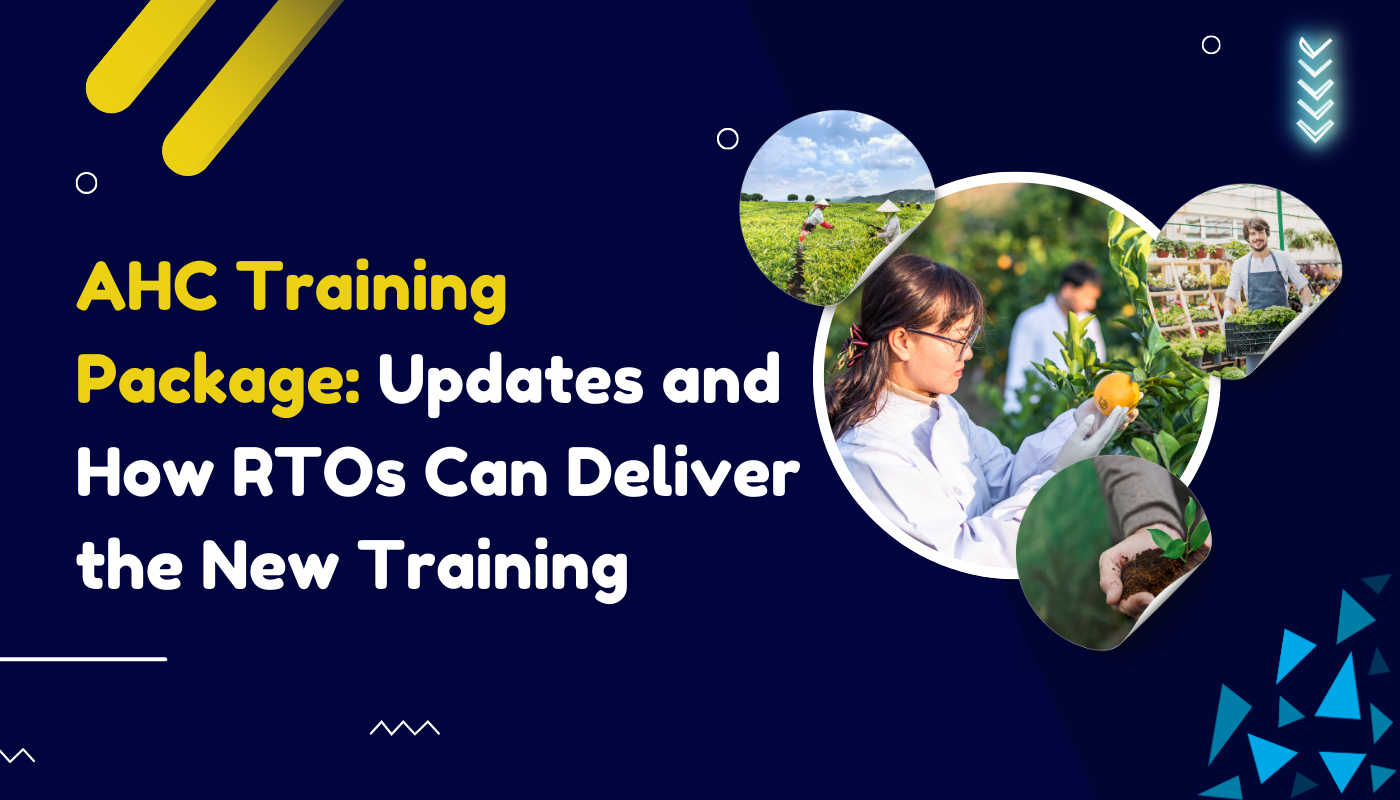
With the recent increase in international student enrolments in Australia, maintaining compliance and ensuring the delivery of high-quality education has become more crucial than ever. The Australian Skills Quality Authority (ASQA) plays a vital role in ensuring that Registered Training Organisations (RTOs) meet these expectations.
ASQA site visits are designed to assess an RTO’s compliance with the Standards for Registered Training Organisations (RTOs) 2015 and the Education Services for Overseas Students (ESOS) Act 2000. With the growing number of international students, ASQA is focusing on ensuring that RTOs provide genuine and quality education. The objective is to identify and mitigate risks related to non-compliance, student exploitation, and fraudulent practices, ultimately safeguarding the reputation of Australia’s education system.
Here are the five key areas ASQA focuses on during these site visits and how your RTO can ensure compliance:
The agriculture, horticulture, and conservation and land management sectors are constantly evolving, and the AHC training product is no exception. The latest updates to the training package reflect the changing needs of these industries, and they offer RTOs new opportunities to deliver high-quality training to their students. The blog, “AHC Training Package: Updates and How RTOs Can Deliver the New Training” will discuss all of it.
The AHC training product has been updated several times since its initial release in 2011. The latest version, version 9.0, was released on January 24, 2023.
In addition to the new qualifications that were added in version 9.0, ASQA has also approved an extended transition period for a number of qualifications. This means that learners who are currently enrolled in these qualifications will have more time to complete their studies.
The qualifications that are included in the extended transition period are:
| AHC10216 | Certificate I in Agri-food Operations |
| AHC10316 | Certificate I in Horticulture |
| AHC20116 | Certificate II in Agriculture |
| AHC20416 | Certificate II in Horticulture |
| AHC30116 | Certificate III in Agriculture |
| AHC30716 | Certificate III in Horticulture |
| AHC32816 | Certificate III in Rural Operations |
| AHC33719 | Certificate III in Protected Horticulture |
| AHC40116 | Certificate IV in Agriculture |
| AHC40416 | Certificate IV in Horticulture |
| AHC50116 | Diploma of Agriculture |
| AHC50416 | Diploma of Horticulture |
| AHC51216 | Diploma of Community Coordination and Facilitation |
The extended training, assessment, and certification issuance period will last until 22 January 2025. This gives learners more time to complete their studies and allows RTOs to manage a smooth transition.
RTOs can still enrol and commence students during this period. However, it’s essential to note that all students must complete their course requirements and receive their certifications or statements of attainment by the transition end date. Alternatively, RTOs can transfer them to the replacement qualification, ensuring no learner is left behind.
The extended transition period is a positive development for learners and RTOs. It gives learners more time to complete their studies and ensures that they are not disadvantaged by the changes to the AHC training package. It also allows RTOs to manage a smooth transition and ensure that their students are able to complete their studies successfully.
Here is a table that summarises the changes that were made in version 9.0:
| Change | Details |
| New qualifications | The Certificate IV in Sustainable Agriculture (AHC40920) and the Diploma of Community Coordination and Facilitation (AHC51222) were added. |
| Updated competency units | Some competency units were updated to reflect the latest industry trends and practices. |
| Revised assessment criteria | The assessment criteria for some competency units were revised to make them clearer and more specific. assessment |
The AHC Training Package 9.0 released on 24 Jan, 2023 has the following number of qualifications:
Certificate I (4 certificates), Certificate II (15 certificates), Certificate III (26 certificates), Certificate IV (14 certificates), Diploma (16 certificates), Advanced Diploma 3 (Advanced Diploma), Graduate Diploma (1 Graduate Diploma). All the information related to the AHC training package can be found on training.gov.au.
The implications for RTOs are significant, but they also provide an opportunity for RTOs to improve the quality of their training and better meet the needs of their students. By taking the necessary steps to update their training materials and assessment procedures, upskill their trainers, and find new ways to deliver training, RTOs can ensure that they are well-positioned to deliver the new AHC training package to their students.

The latest updates to the AHC training package offer RTOs new opportunities to deliver high-quality training to their students. By using online learning, blended learning, and other innovative approaches, RTOs can help their students succeed in the agriculture, horticulture, and conservation and land management sectors.
Are you an RTO looking for quality RTO training resources? If yes, then VET Resources is your partner. We also have a YouTube Channel with videos on RTO related matters. We also offer free consultation to RTOs. For further information please contact here.
Q.1. What are the benefits of the new AHC training package?
A.1. The new AHC training package is aligned with the latest industry trends and provides students with the knowledge and skills they need to succeed in the agriculture, horticulture, and conservation and land management sectors.
Q.2. How can RTOs deliver the new AHC training package?
A.2. RTOs can deliver the new AHC training package using a variety of methods, such as online learning, blended learning, and face-to-face instruction.
Q.3. Where can RTOs find more information about the new AHC training package?
A.3. RTOs can find more information about the new AHC training package on the AHC training package website.
Q.4. What are the ASQA standards that RTOs must meet?
A.4. RTOs must meet the standards set by the Australian Skills Quality Authority (ASQA) in order to deliver the new AHC training update.
Q.5 What is an extended transition period?
A.5. An extended transition period is a period of time during which learners can continue to study for a qualification that is being phased out. This is done to give learners time to complete their studies without being disadvantaged. In this case, the extended transition period for the qualifications listed in the reference content will conclude on January 22, 2025.
Q.6. Why was an extended transition period approved for these qualifications?
A.6. The Agribusiness Jobs and Skills Council (AJSC) made a submission to ASQA requesting an extended transition period for these qualifications. The AJSC argued that the qualifications are in high demand and that many learners are currently enrolled in them. They also argued that the changes to the qualifications are significant and that learners need time to adapt to them.
Q.7. What are the implications of the extended transition period for learners?
A.7 Learners who are currently enrolled in one of the affected qualifications will have until January 22, 2025 to complete their studies. They can continue to study with their current provider or transfer to another provider.
Q.8. What are the implications of the extended transition period for training providers?
A.8. Training providers who offer one of the affected qualifications will need to ensure that their programs remain relevant and compliant throughout the extended period. This may involve updating curricula, resources, and assessment strategies to meet the evolving industry standards.
Q.9. Where can I find more information about the extended transition period?
A.9. You can find more information about the extended transition period on the ASQA website. The link is: https://www.asqa.gov.au/news-events/news/extended-transition-period-ahc-qualifications
Q.10. What is Skills Impact?
A.10. Skills Impact is a government-funded organisation that provides support to the agricultural, horticultural, and community coordination sectors. They offer a range of products and services, including training packages, assessment tools, and resources.
Disclaimer:
The information presented on the VET Resources blog is for general guidance only. While we strive for accuracy, we cannot guarantee the completeness or timeliness of the information. VET Resources is not responsible for any errors or omissions, or for the results obtained from the use of this information. Always consult a professional for advice tailored to your circumstances.
Ben Thakkar is a Compliance, Training, and Business specialist in the education industry. He has held senior management roles, including General Manager, with leading Registered Training Organisations (RTOs) and Universities. With over 15 years of experience, Ben brings extensive expertise across audits, funding contracts, VET Student Loans, CRICOS, and the Standards for RTOs 2025.
Ben Thakkar
By submitting this form, you agree to the VET Resources Privacy Policy.